Regarding the Fields at Rest: A Traveler's Reflections
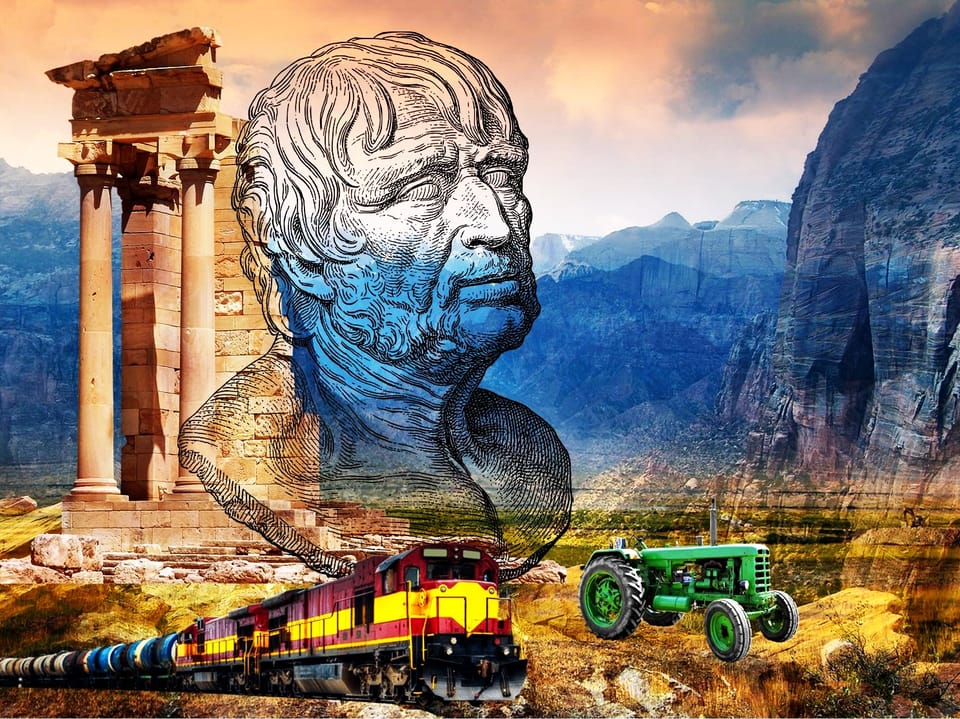
As spring unfolds, local farmers prepare their fields with care, each movement of earth and machine choreographed to embrace the season. My neighbors warn of the days ahead, when heat and mosquitos will impose their rites of summer, as emerging alfalfa crops absorb the sun. Curious and delighted, I glance across the street each evening to behold the fields at rest, as they mark cycles of growth and decay. Now, I digress for a moment to reflect on Seneca, whose image you see pictured above, nestled amid scattered thoughts.
Search your memory: how seldom you have had a consistent plan, how few days worked out as you intended, how seldom you have enjoyed full use of yourself, how seldom your face wore an inartificial expression, how seldom your mind was unflurried, what accomplishments you have to show for so long a life, how much of your life has been pilfered by others without your being aware of it, how much of it you have lost, how much was dispensed on groundless regret, foolish gladness, greedy desire, polite society--and then realize that your death will be premature. (1)
Now, to be fair, I am not a Stoic, neither am I a philosopher of any sort. However, as I sat at a local café this week, awaiting the arrival of my lemonade and cheeseburger, I glanced around the dining room with its busy waitresses and lunch conversations, noticing a group of women who had spilled something and laughed in awkward amusement, as a man nearby coughed and blew his nose over his bacon and eggs. For some reason, in the midst of such commotion, philosophy came quickly to mind. So, I opened the book I had brought along for companionship, curious about the parallels that link ancient life to our modern world. Experiencing the delightful fragrance of paper, mingled with the aroma of coffee and country breakfasts, I surveyed the restaurant scene and began to study the passage above. I suppose the moment was epicurean rather than stoic.
A general accounting of years is a grim thing to consider, not least because of philosophers and their pronouncements. In truth, if I held Seneca's outlook, and regarded our fragile lives from his perspective, little would seem bright or hopeful.
I should like to buttonhole one of the oldsters and say to him: I see that you have reached the highest life expectancy and are now close to a century or more; please give us an itemized account of your years. (2)
"On the Shortness of Life," the essay from which we are reading, is something of a classic in Western thought, one even a non-philosopher is likely to have read and considered--especially as the years unfold and age becomes troublesome. With this in mind, how should we regard our lives? Perhaps Seneca would have balked at the modest enjoyments of a café lunch or my quiet observation of crowds. Must we be so serious as to reject such things, to regard them as frivolous and fleeting pleasures? Restful observation has its place. Sometimes, it's important for the fields to be at rest and to remain free of philosophical cultivation. So, I enjoyed my lunch and then ventured into the breezy afternoon, relaxed and curious about local history.
Mining Memorials and the Arts
Helper, Utah provided the setting for my lunch and the hours of reflection that followed. Named for the engines that assist trains, pushing them through high elevations, Helper has a charm appreciated by its longtime residents and new arrivals, as well. Now in the process of being revitalized, the city is transforming from a dead mining and railroad town into a center for the arts. As I was told by locals, a retired professor purchased an old building about ten years ago and started the endeavor, creating fresh exhibit spaces and studios for artists in residence. And what does the future hold?
I do hope that Helper will retain its identity and resist developers. However, as of this writing, politicians and wealthy builders already have their eye on it--plans for "improvement" on the horizon. According to locals, half of the residents favor upscale development--in the manner of Park City--while the rest hope to resist greedy investors, keeping things accessible to ordinary folks and the artists who flourish here. Since the writing is on the wall, so to speak, let's consider the heritage of laborers and their immeasurable contributions to Helper, Utah.
At the southern end of town, a mining museum tells the story of men who worked, and sometimes lost their lives, to feed their families and build the community. And, of course, there was the brothel industry, as well, also commemorated by the buildings that remain. Indeed, we find no shortage of poignant reminders; men perishing in mines are typically nameless in the pages of history. However, in Helper, skillful historians and curators have memorialized citizens of the past with care.
Again, perhaps Seneca would have scoffed at the passing of so many individuals and the artifacts they produced. In my estimation, an accounting of years is most relevant when many lives are considered together, each one being part of a larger story.
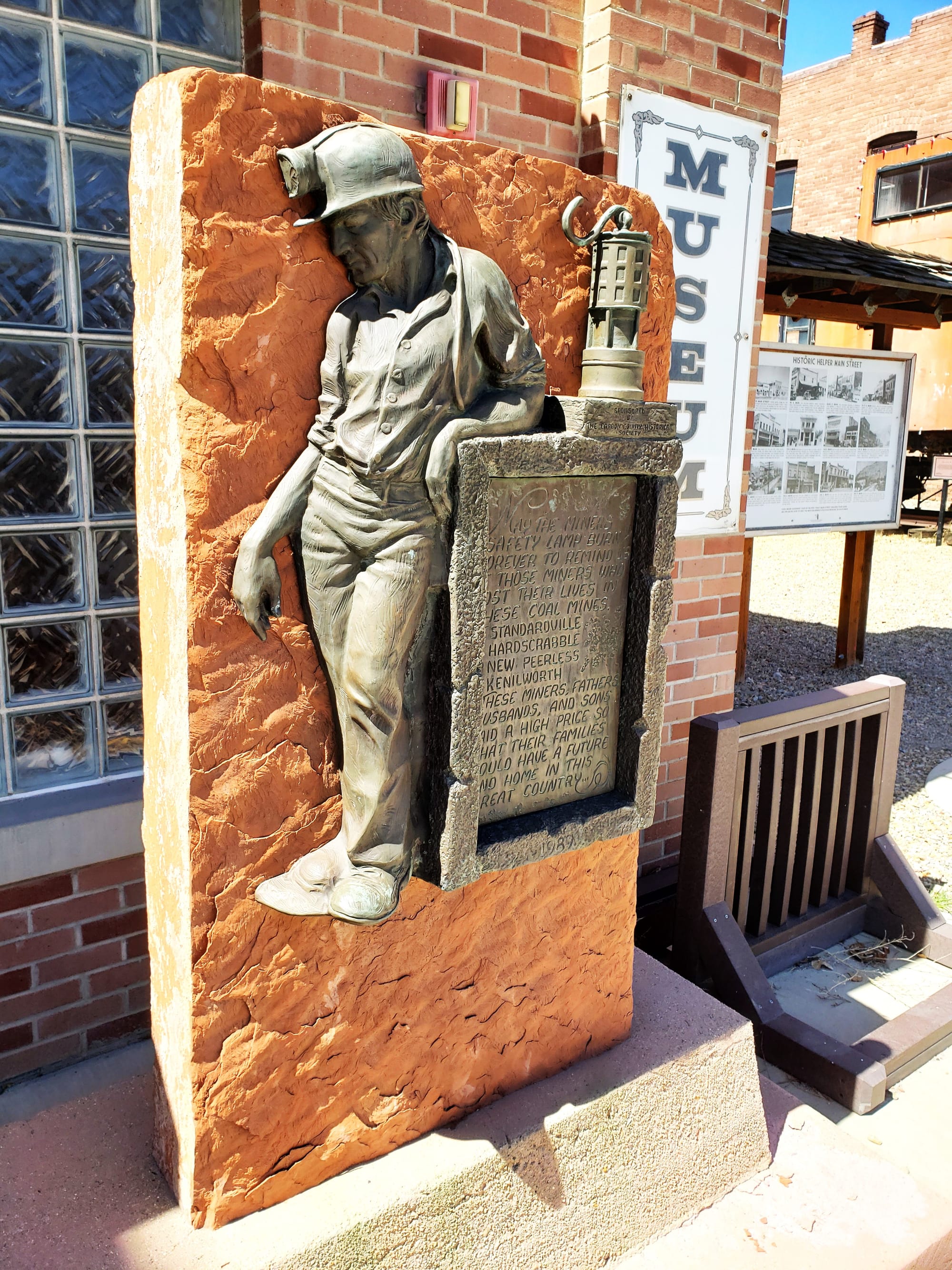
In the basement of the mining and railroad museum, visitors find group photos of workers from various decades, men whose faces peer out from history as reminders. The comforts we enjoy, the food and beverages we consume, and the buildings we occupy come from the hands of laborers, often overlooked.
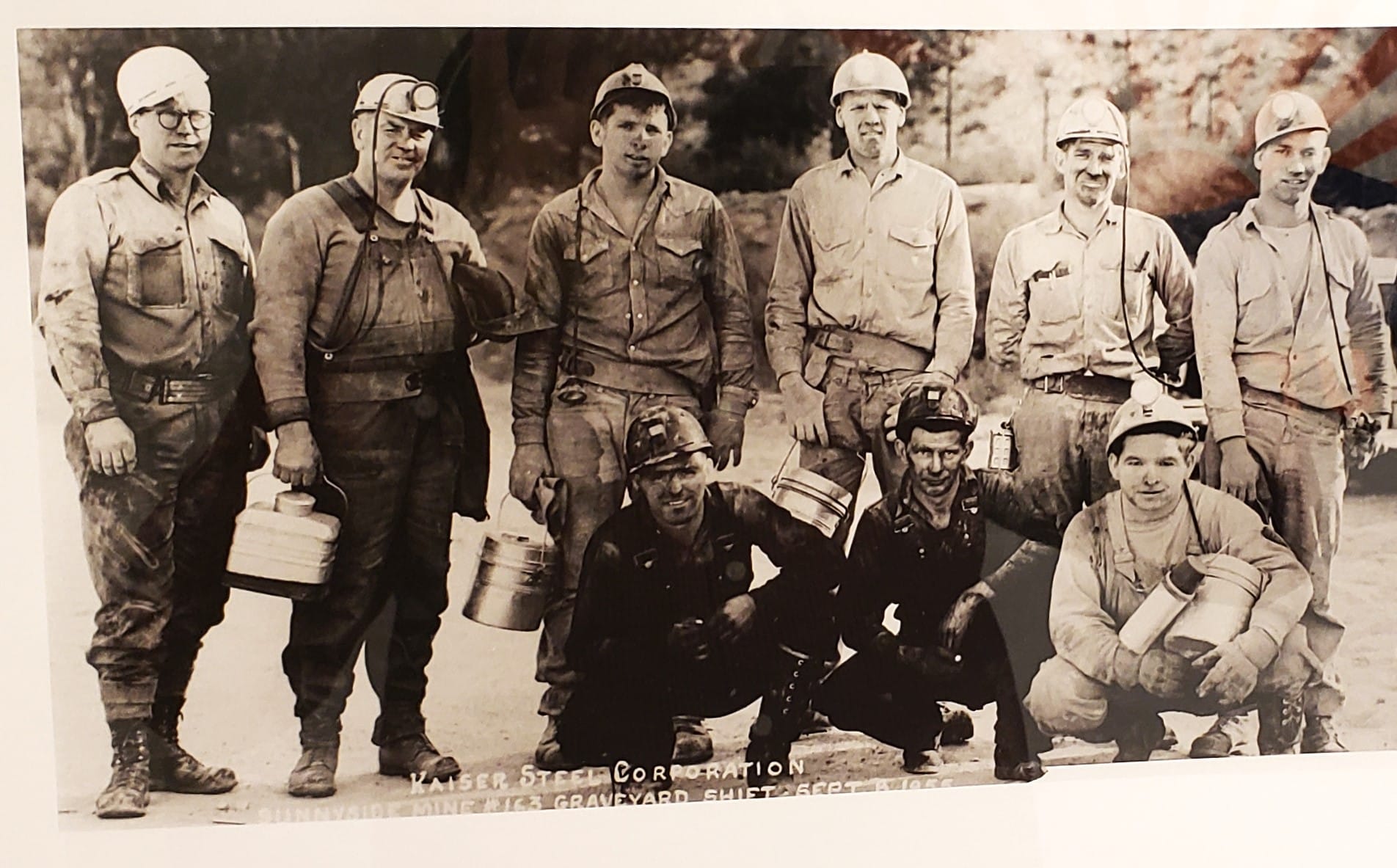
Concluding Reflections
For many, art and nature lend meaning to life, adding beauty to the moments we experience. To my mind, spilling our lunch in a café, or even strolling the streets of a new city with wonder, will banish any stoic sense of futility, as will the appreciation of geologic wonders. In the evenings, I enjoy sitting outside to view this glorious mountain, the name of which no one seems to know. On the other side of the Blue Cut RV Park, my temporary home, the brown waters of Price River flow with spring melt and feed nearby canals.
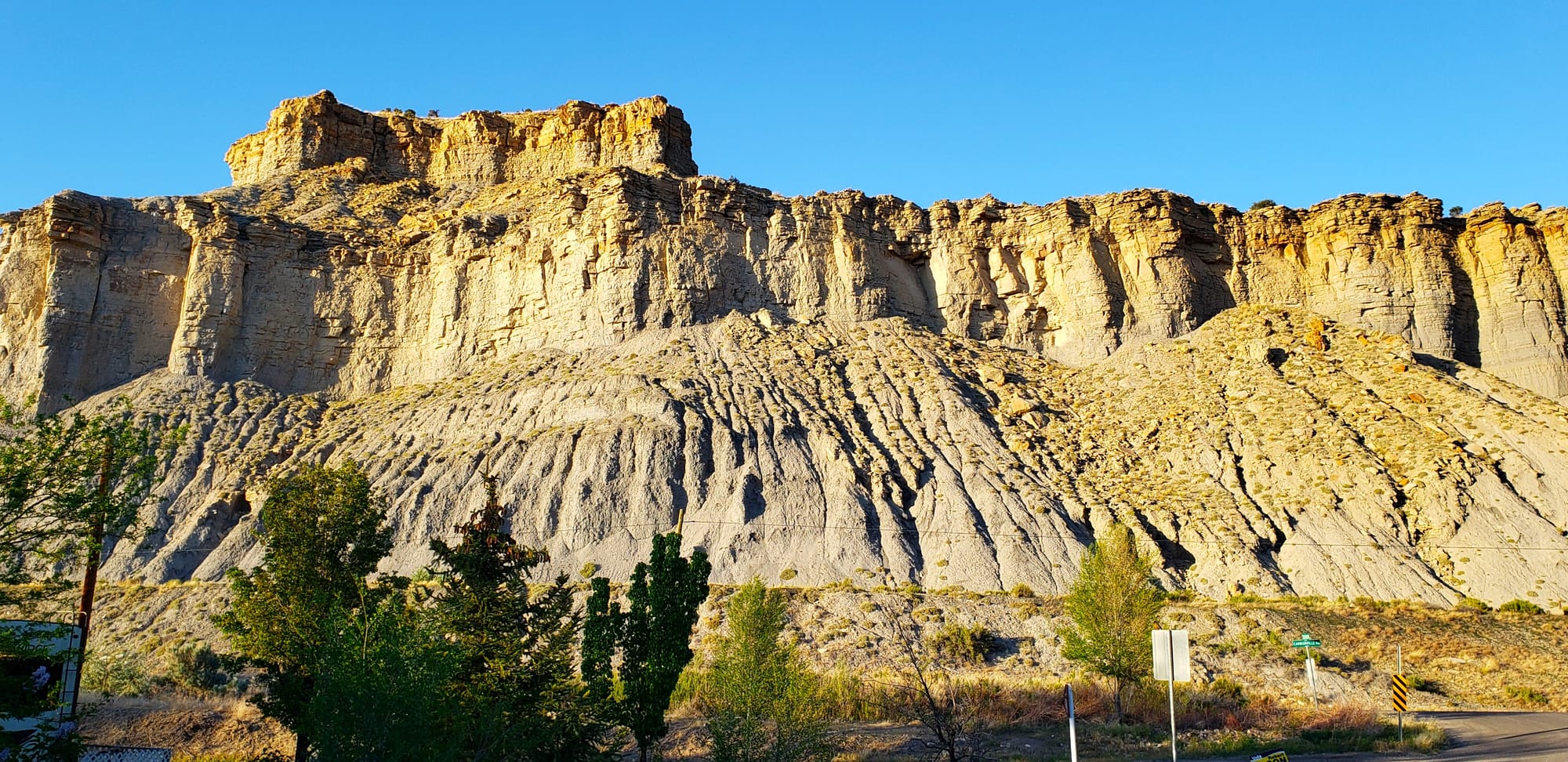
After a bit of refreshment and reflection, I begin to draw my own landscapes of wonder.
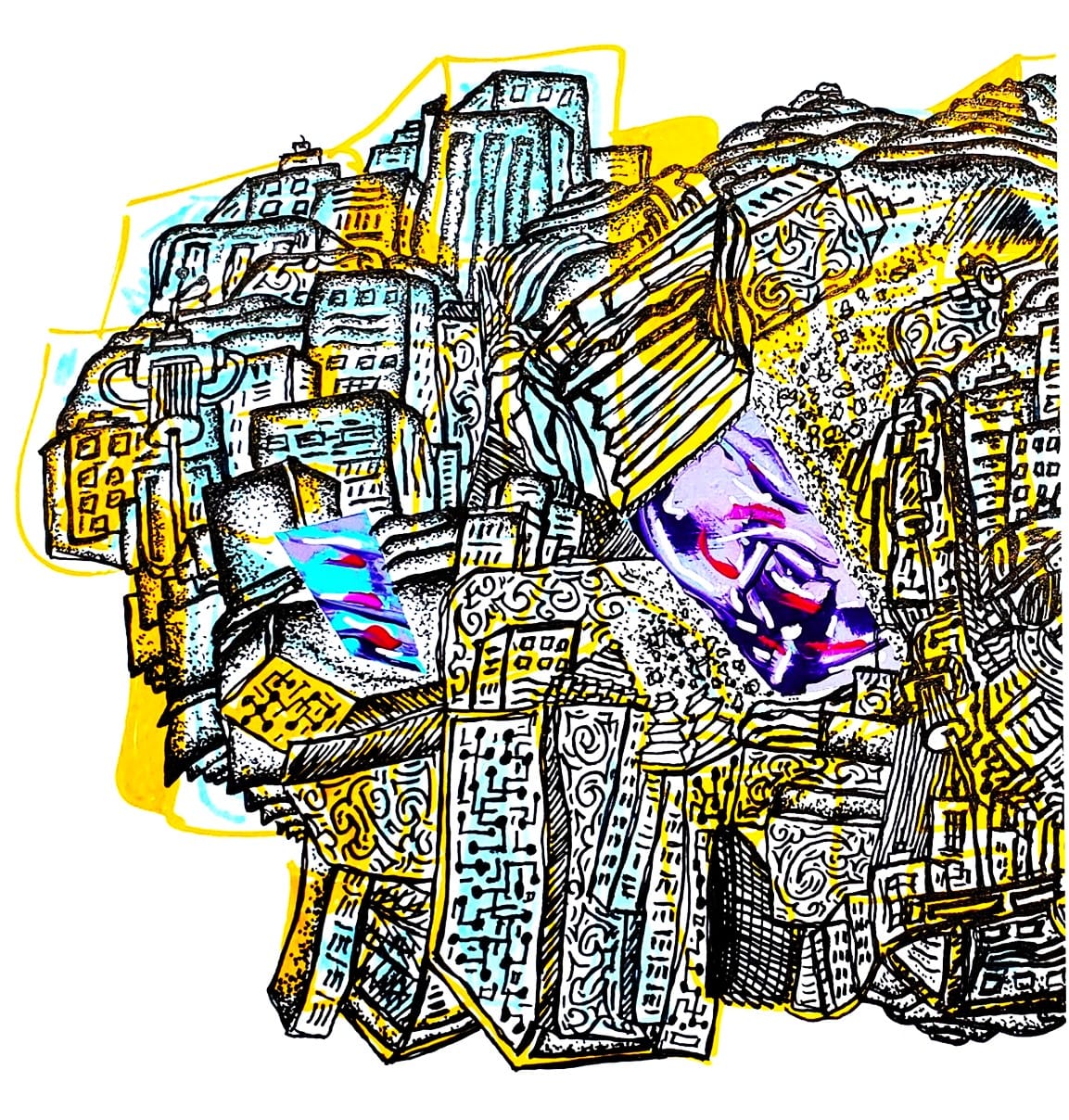
Thankfully, when the fields are at rest, they are peaceful and herald seasons of growth and fruition. With that in mind, I enjoy the artistic life of Helper, Utah, chatting with locals and experimenting with new pen & ink techniques. The city has become a quiet haven of the arts, with its modest surroundings and heritage of labor. I enjoyed my time here immensely.
Works Cited:
(1) The Stoic Philosophy of Seneca: Essays and Letters (Translated with an Introduction by Moses Hadas). New York: Norton & Norton Company, 1958. (p. 50).
(2) ibid.